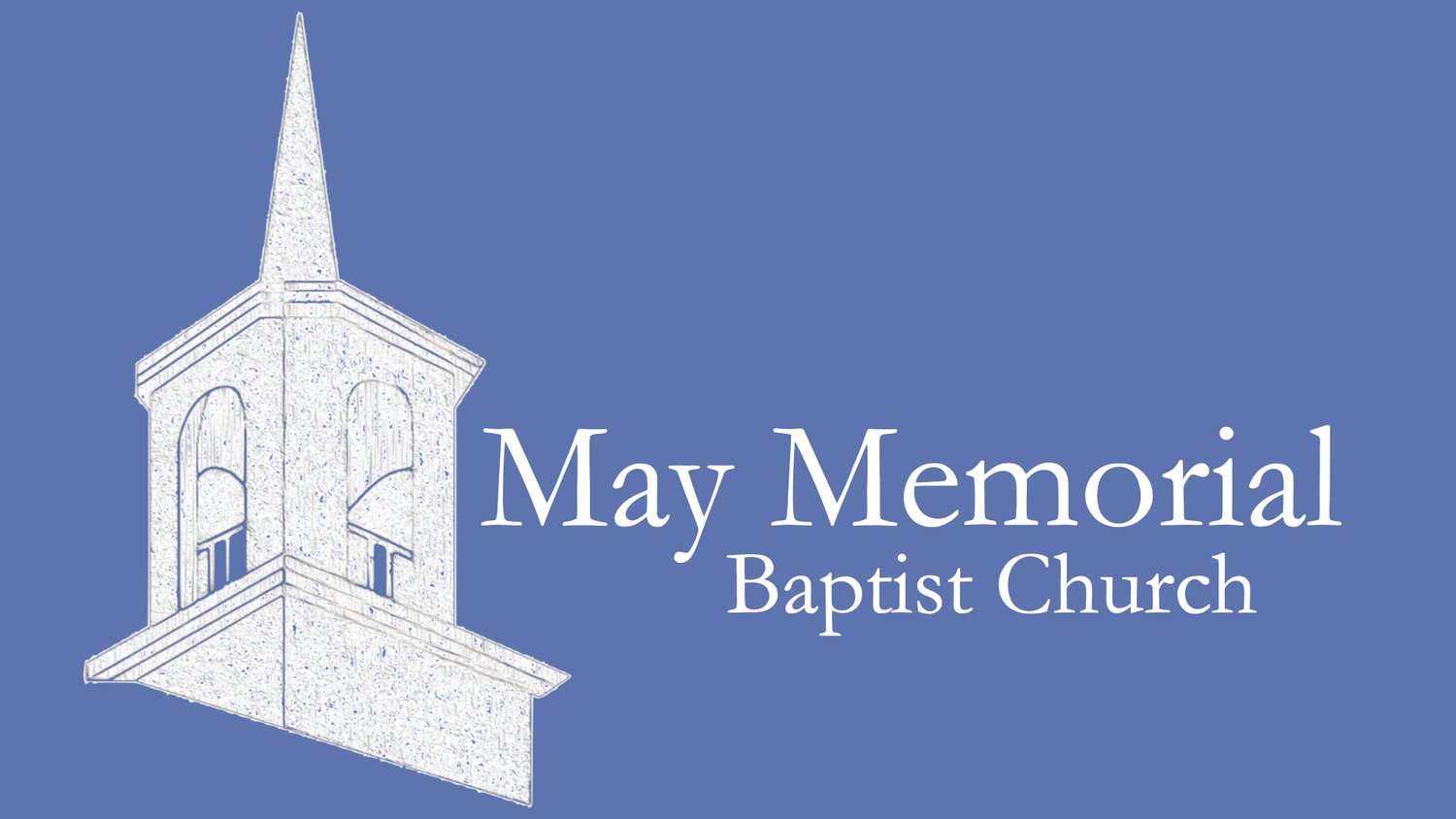This past weekend I officiated at my sixty-fifth funeral since coming to May Memorial. The vast majority of those sixty-five have been for members of the May Memorial family, while others have been for folks in the community who were friends of church members. A couple of those sixty-five have been people that I have known and not a part of May Memorial, and some are persons who had no pastor and I simply received a call from the funeral home looking for a pastor to preside. But most of them have been May Memorial people. In addition to those sixty-five, there have been others who have passed away and I was unable to do the funeral, and I am thankful for former pastor Rudy Potter who has always been willing to lead those and be a steady source of comfort and Christian love.
I have thought a lot about funerals over the past few months, and I have concluded that funerals become both easier and more difficult over time.
How do they get easier? The way they get easier is that I have established an outline of how to prepare and I know much of what I’m going to say and do. I always plan with the family about what will be involved at the funeral, but I know that there are some “essentials” that are not really negotiable. These are words that have been spoken at times of death for centuries (or millennia?). These are important words. Important prayers. Important statements. Words like “The LORD is my shepherd…even though I walk through the valley of the shadow of death…”. I am normally not an “off the cuff” person, but especially at funerals I am unwilling to simply stand up and say whatever happens to come to my mind. It is too important an occasion to rely on my spontaneity to produce the words that need to be said. I will always speak words about resurrection, Jesus saying “I am the resurrection and the life, those who believe in me…”. I will pray a prayer of committal, “In sure and certain hope of the resurrection to eternal life, we commend to almighty God our sister/brother name, and we commit his/her remains to the ground. Earth to earth, ashes to ashes, dust to dust.” These are important words, and they will be a part of most every funeral I do. So in this way, funerals have become easier. I know my plan.
But funerals have also become more difficult. And this is simple. The relationships and love that grows over the course of a decade is far deeper than a relationship that happens in months or a couple of years. And yes, pastors are emotionally attached and affected when they officiate at a funeral. A pastor does not have the ability to completely disconnect from the emotion and grief that is so thick at a funeral. And this is again another reason to rely on traditional words that have been spoken for generations. It is more difficult emotionally to do a funeral for someone you love. And each year a pastor’s love for members of the congregation grows more and more.
I take funerals seriously. If I am off point (or boring or ineffective) for a Sunday sermon, I always have next Sunday coming. But for a funeral, I have one chance, and I don’t want to waste the opportunity to speak important words well for that grieving family. Being the pastor of a church like May Memorial means that funerals are a large part of my ministry, and I embrace that calling as from God. It is not always easy work, but it is important, and I am grateful this good work God and May Memorial has entrusted to me.
